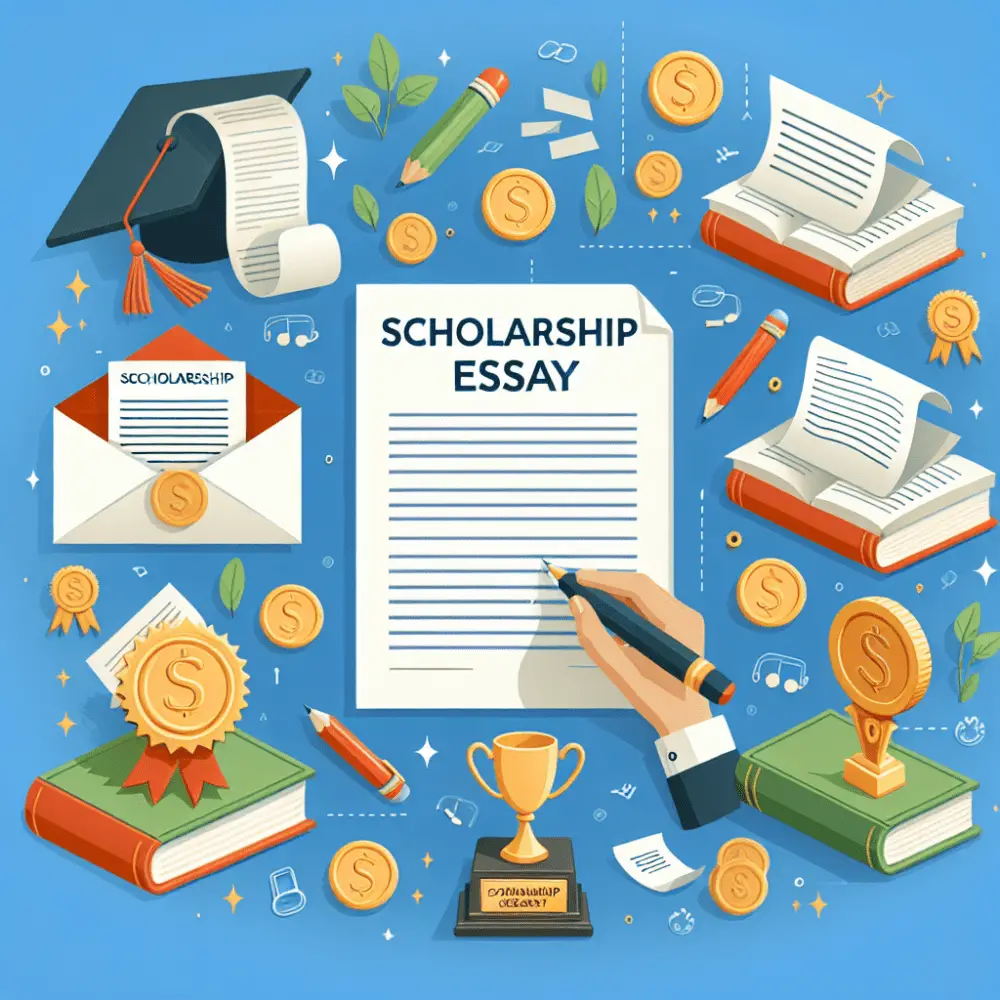
Crafting a Winning Scholarship Essay: Tips and Examples for Success
Applying for scholarships can be a daunting task, but writing a compelling scholarship essay is often the key to securing the funds needed for higher education. A strong essay can set an applicant apart from thousands of others, highlighting their strengths, personality, and dedication. This article offers tips and examples to help students craft winning scholarship essays in simple, clear American English.
understanding the prompt
The first step in writing a successful scholarship essay is understanding the prompt. Each scholarship committee has specific criteria and themes they want applicants to address. Reading the prompt carefully ensures that the essay will meet these expectations.
For example, if a prompt asks about leadership experience, focusing on academic achievements alone might not suffice. Instead, discussing involvement in student government or community service projects would be more appropriate.
Brainstorming Ideas
Before putting pen to paper or fingers to keyboard, brainstorming ideas can help organize thoughts. reflect on personal experiences that align with the prompt’s focus. Consider jotting down key moments that showcase qualities such as leadership, perseverance, creativity, or community involvement.
Here are some questions to guide brainstorming:
- What challenges have I overcome?
- What are my long-term goals?
- How have I contributed to my community?
- Who has influenced me the most?
Crafting a Strong Introduction
A compelling introduction grabs the reader’s attention right away. Begin with an engaging anecdote or a thought-provoking quote that relates directly to the essay’s theme.
For instance:
“As I stood at the podium nervously clutching my speech notes on recycling initiatives at our school, I realized this moment would define my commitment to environmental conservation.”
This opening sentence sets up an engaging story while introducing a key theme: dedication to environmental causes.
Developing the Body Paragraphs
The body of the essay should provide detailed examples that support the main theme introduced in the opening paragraph. Each paragraph should focus on one specific idea or experience and include:
- A Clear Topic Sentence: This sentence introduces what each paragraph will discuss.
- Evidence and Examples: Share personal stories or specific instances that illustrate your point.
- Reflection: Explain why these experiences were significant and how they have shaped you.
For example:
Topic Sentence: My role as president of our school’s Eco Club taught me valuable lessons in leadership and teamwork.
Evidence/Example: Last year, we organized a community clean-up event that attracted over 200 volunteers.
Reflection: This experience showed me how collective effort could bring about substantial change and reinforced my passion for environmental advocacy.
Highlighting Personal Qualities
Scholarship committees look for candidates who stand out not just academically but also through their character and values. Emphasize qualities such as resilience, integrity, empathy, or initiative through concrete examples rather than vague statements.
Instead of saying “I am dedicated,” show dedication by describing late nights spent studying or hours volunteered at local shelters despite hectic schedules.
Concluding with Impact
The conclusion should tie together all points made throughout the essay while reiterating why you are deserving of the scholarship. Avoid simply summarizing; instead reflect on how receiving this scholarship will impact your future goals positively.
A strong conclusion might look like this:
“Receiving this scholarship will enable me to continue advocating for sustainable practices at college while pursuing a degree in Environmental Science—a dream I’ve nurtured since leading my first community clean-up event.”
This ties back into earlier points made about environmental advocacy while looking forward towards future aspirations.
Examples of Scholarship Essays
To better understand how these tips come together harmoniously within an actual piece here are two examples illustrating different themes:
Example 1: Overcoming Adversity
Prompt: Describe a time when you faced significant adversity yet persevered towards achieving your goal.
Essay:
“Growing up in foster care presented numerous challenges—from frequent relocations disrupting schooling routines—to feelings of uncertainty clouding every new home transition… Yet despite these obstacles—education remained steadfastly central throughout—all thanks largely due unwavering support shown caring teachers mentors encountered along journey.”
Each paragraph following delves deeper into specific instances demonstrating resilience—such as maintaining straight-A status amidst multiple school transfers—and culminating with reflections upon how overcoming adversities shaped unwavering determination pursue higher education dreams against all odds—aided immensely prospective financial aid provided via said prospective scholarship fund…
Example 2: Community Involvement
Prompt: How have you contributed positively within your local community?
Essay:
“Our small town faced severe flooding last summer devastating many households—including mine—but rather than feeling defeated decided channel energy towards organizing relief efforts benefiting affected neighbors…”
Subsequent paragraphs narrate hands-on involvement coordinating food drives—assembling care packages distributing essentials those worst hit—mobilizing fellow students join cause—all reflecting profound sense communal responsibility empathy underpinning actions taken—and concluding envisaged continuation similar altruistic endeavors elevated further educational pursuits facilitated greatly awarded bursary…
Final Tips Before Submission
Before submitting any final draft consider following additional pointers ensuring polished professional presentation reflective utmost potential showcased therein:
Proofread Thoroughly : Check spelling grammar punctuation consistency thoroughly multiple times utilizing peer reviews where possible seeking objective feedback improving clarity flow overall readability…
Follow Instructions Precisely: Ensure adherence stipulated word counts formats guidelines provided avoiding disqualification technicalities…
Be Authentic: Above maintaining honest true representation oneself throughout avoiding embellishments fabrications undermining credibility sincerity conveyed therein…
Conclusion
Mastering art crafting winning scholarship essays entails careful planning thoughtful reflection articulate expression underpinned genuine passion authenticity resonating clearly evaluators assessing myriad applications annually received discerning best fit award grants sought… By implementing outlined strategies diligently aspiring scholars significantly enhance chances clinching coveted financial aids advancing educational journeys meaningfully thereby realizing fullest potentials envisioned therein…












